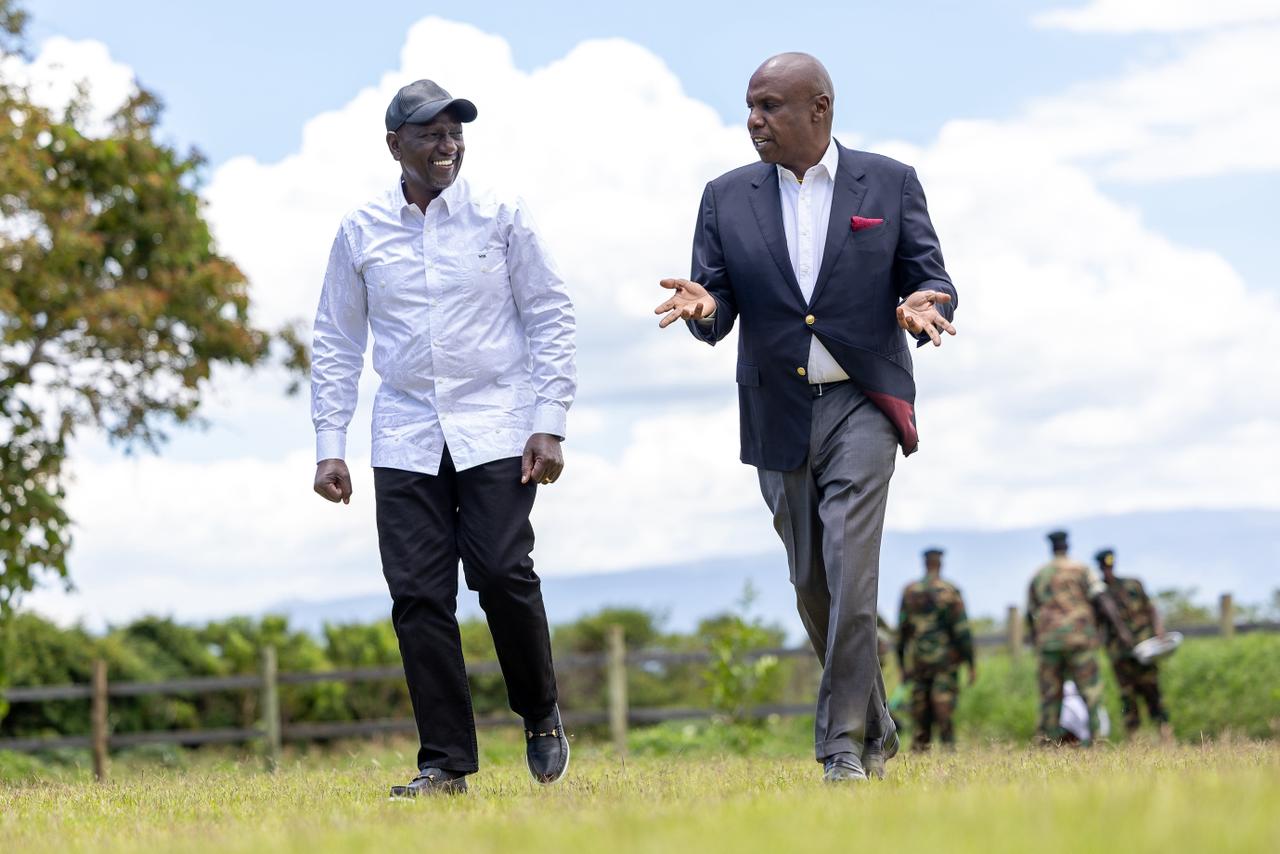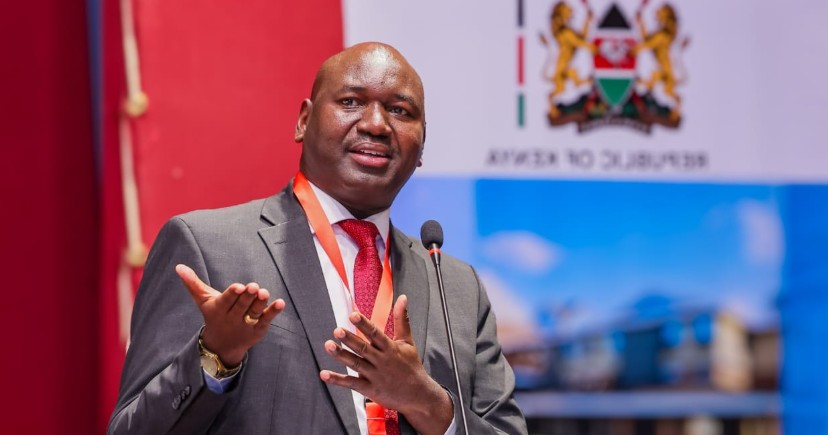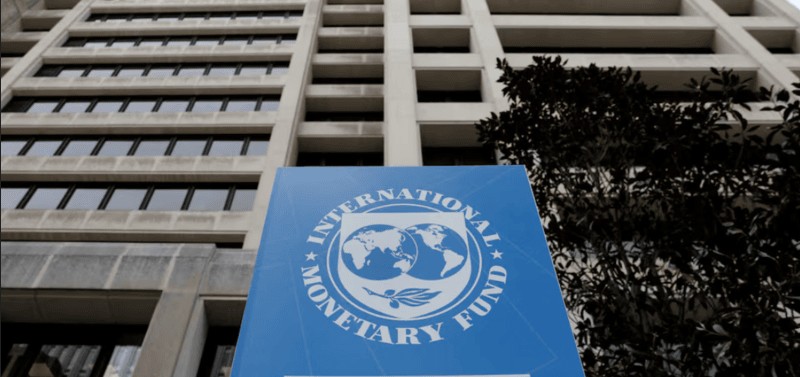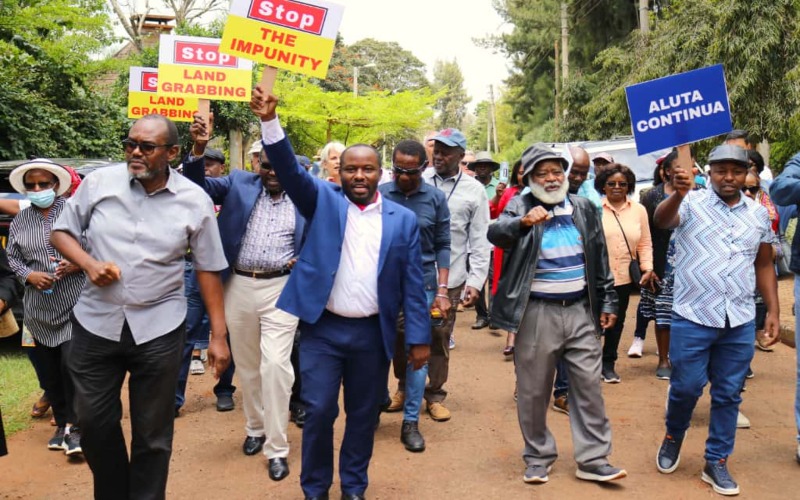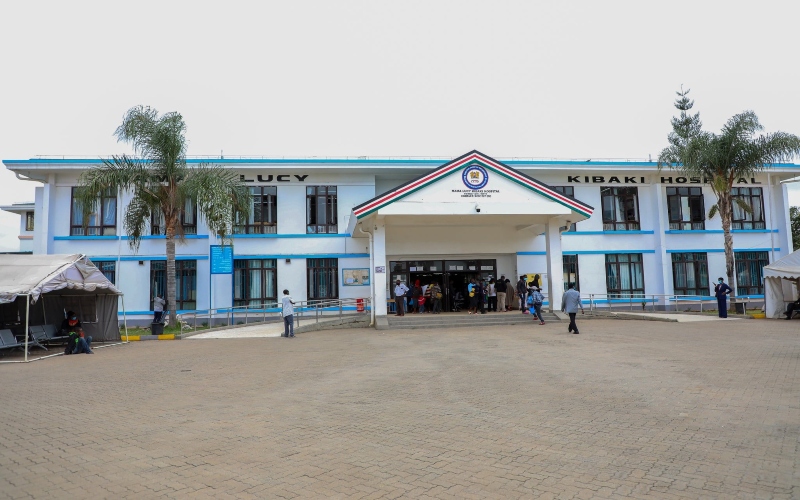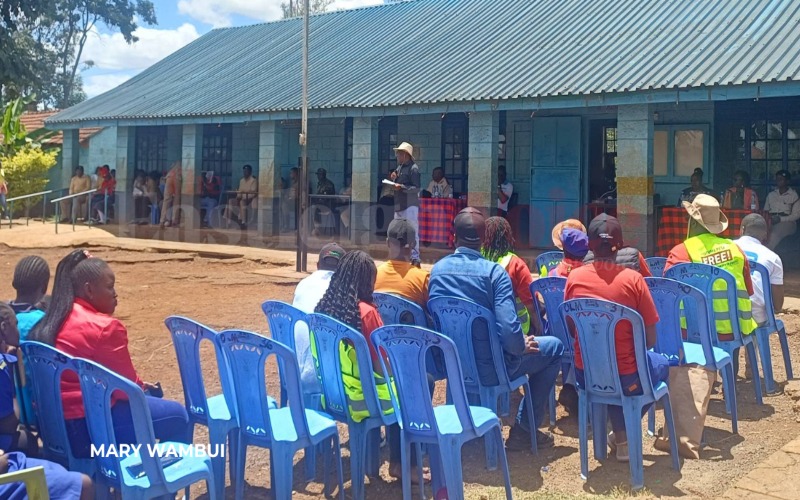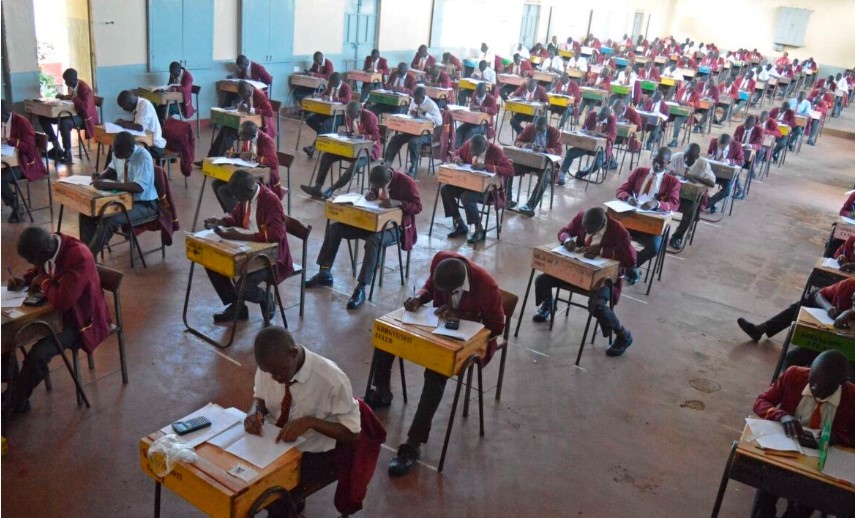President Ruto launches Mombasa Commuter Rail Service, slashes travel costs to Sh50
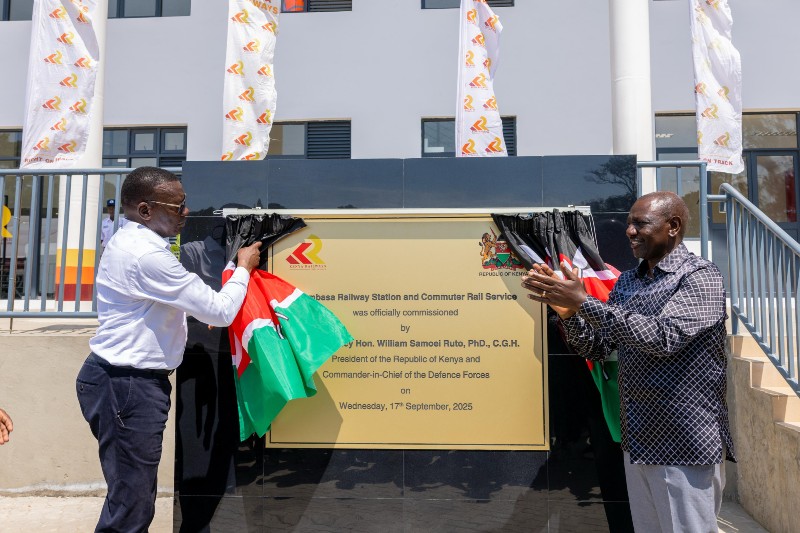
The move is expected to ease congestion, cut commuting time, and provide a safer and more predictable journey for thousands of passengers.
President William Ruto on Wednesday officially opened the Mombasa Commuter Rail Service, offering residents an affordable and reliable travel option at just Sh50 for a round trip between the Mombasa SGR terminus at Miritini and Mombasa Central Railway Station.
The move is expected to ease congestion, cut commuting time, and provide a safer and more predictable journey for thousands of passengers.
More To Read
- Gideon Moi's KANU party joins broad-based government in yet another political realignment
- President Ruto launches nationwide drive to plant 2 billion tree seedlings each year
- Teen who breached Parliament, claiming to be President Ruto’s son, freed
- President Ruto takes helm as COMESA chair, urges African-led growth and integration
- President Ruto calls on Africa to embrace digital tools for jobs and growth
- Jimi Wanjigi promises government overhaul if elected president
Speaking at the launch, Ruto said the rail service is a timely and vital solution to some of the city’s most pressing challenges.
“For too long, passengers commuting between the Mombasa central business district and the SGR terminus at Miritini have endured congestion, delays, and the burden of unreliable road traffic. With this new service, journeys will be faster, safer, and more predictable. It will cut commuting time, reduce road gridlocks, lower accidents and costs, and provide residents and visitors with a modern, affordable, and reliable travel option,” he said.
Ruto added that the train will stop at Miritini, Changamwe West, Changamwe East, Shimanzi, Mazeras, and Mombasa CBD.
“By serving these vital routes, the service will decongest the city, enhance productivity, and make daily commuting easier for thousands of people. Today’s commissioning is a landmark occasion for Mombasa, the coastal region, and the entire nation,” he noted.
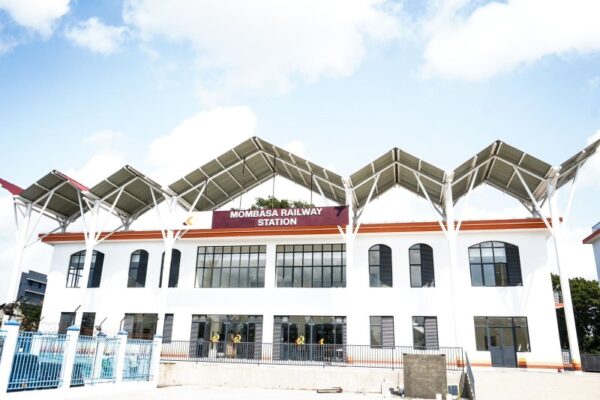 Mombasa Commuter Rail Station. (Photo: PCS)
Mombasa Commuter Rail Station. (Photo: PCS)
He highlighted the historical significance of the location, noting “Here at Kilometre Zero, the Kenya-Uganda Railway began nearly 130 years ago… Today, Kilometre Zero once again makes history as the place where modern Kenya’s transport revolution begins anew.”
Kenya Railways Board Chairperson Abdi Bare Duale said the new service will halve travel time and drastically reduce costs.
“This commuter rail we are launching today will cut the travel time between the city of Mombasa to the Tamils by half, and it will also reduce the cost of travelling between the terminals to the city or from the city to the terminus, from Sh1,000 by taxi, from Sh400 by matatu, to Sh50 between the two stations,” he said.
Highlighting Kenya Railways' achievements in passenger and cargo transport, Abdi added, “In the last financial year, we moved 8.16 million people between Mombasa and Nairobi, and we carried over 8 million tonnes of cargo. For those who remember congestion at the Port of Mombasa, freight now moves efficiently, without delays.”
According to Kenya Railways Managing Director Philip Mainga, multiple stations and routes have been rehabilitated to bring back commuter rail services nationwide.
“We have rehabilitated all the other stations in Kenya; Nakuru to Kisumu (216.7 kms), Thika to Nanyuki (177kms), Kisumu to Butere (69 kms), Leseru to Kitale (64.9 kms), Gilgil to Nyahururu (76.8 kms), and Nairobi Commuter Rail (165km). We requested our engineers to come up with designs that will bring back commuter services in Nairobi,” he said.
The Mombasa link now completes a 13.8 km metre-gauge railway from Kilometre Zero to Miritini, with a 2.8 km connection to the SGR, providing the much-needed first and last mile for passengers. The service can handle up to 4,000 passengers daily.
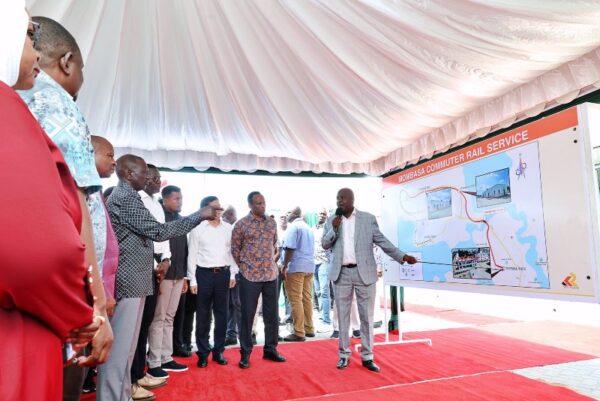 President William Ruto is taken through an artist's impression of the Mombasa Commuter Rail Service on September 17, 2025. (Photo: PCS)
President William Ruto is taken through an artist's impression of the Mombasa Commuter Rail Service on September 17, 2025. (Photo: PCS)
Mombasa Governor Abdullswamad Sherrif Nassir, on his part, underscored the importance of delivering for citizens.
“The people have patience, and that patience will only be paid by us being able to deliver. For those people, they will forget the pain that they went through during that time of being patient, but they will never forgive you for not being able to deliver. People need to move and transport their goods. Where one can shorten the time of transport and make it easier for transportation in terms of distance and cost, you have helped the economy.”
Transport Cabinet Secretary David Chirchir reflected on Kenya’s transport, saying that the government is deliberately investing in roads, rail, and sea infrastructure
The project, as highlighted by the President, is part of a larger plan to expand Kenya’s rail network from Naivasha to Malaba and across the Lamu Port-South Sudan-Ethiopia Transport Corridor.
“Efficient, safe, and sustainable transport is the backbone of a strong economy. By shifting more passengers from road to rail, we lower maintenance costs, cut emissions, and make our transport safer. We also strengthen Mombasa’s position as a hub for trade and tourism, while reinforcing Kenya’s role as the gateway to the African Continental Free Trade Area (AfCFTA), a market of 1.4 billion people,” Ruto added.
He concluded by officially declaring the service open, emphasising that the rail link is both a historical milestone and a modern enabler of economic growth and connectivity.
Top Stories Today
